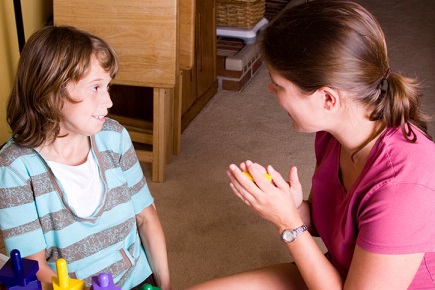
With schools being places where such interpersonal skills are crucial, helping students with autism to thrive educationally and socially can be a particularly challenging issue for teachers and principals to navigate.
This is particularly true when trying to integrate these students into mainstream classrooms – a point recently highlighted in a controversial manner by Senator Pauline Hanson.
Fortunately, research shows that including children with disabilities in mainstream classes leads to benefits not only for these children, but also their peers.
Recognising this, a new program has been launched which aims to enhance the emotional awareness of children with autism and mild intellectual disability by building on their knowledge and awareness of their own and others’ emotions.
The Westmead Feelings Program (WFP) was created by the Developmental Psychiatry Research Team at the Kids Research Institute at the Children’s Hospital at Westmead and published on Wednesday by the Australian Council for Educational Research (ACER).
The program will boost students’ skills in perspective taking and empathy, helping children enhance their capacity to regulate their own emotions; in particular, managing negative or unpleasant emotions.
According to Westmead’s Emotion-based Social Skills Training Program Leader and co-creator of the Westmead Feelings Program, Dr Michelle Wong, the program has been designed so that it can be coordinated and administered by teachers in schools.
“Children with ASD clearly benefit from the support of a clinical psychologist, but also from the joined-up support available when their parents and classroom teachers understand and can assist them in their ‘real life’ relationships at home, in the classroom and playground at school and out in the community,” Dr Wong said.
“Research over 10 years has shown that the Westmead Feelings Program significantly improves emotional competence for children with both ASD and mild intellectual disability.”
ACER Press Publisher, Kate McGough, told The Educator that while there is no cure for ASD, up to 75% of children with the disability also have mental health problems – and these problems are both treatable and preventable.
“The WFP targets emotional skills to promote kids' wellbeing and prevent ongoing mental health problems over the course of their lifetime,” McGough said.
“Research demonstrates a positive association between child well-being, academic performance and engagement in learning.”
McGough said research has shown the WFP to be effective when delivered by teachers who may not have university-level qualifications in mental health.
“Comprehensive online or face-to-face learning programs accompany the Westmead Feelings Program resources, enabling teachers to develop the skills and competencies to implement the program successfully,” she said.
“Teacher participants in research studies in NSW schools have reported that the benefit of the WFP is that it is standardised to ensure consistency, but has enough flexibility to be effective in a range of classroom and school settings.”
While the program is designed specifically to teach emotional and social skills to children with ASD and intellectual disability, McGough said it can also be used to support other children with challenging behaviours or difficulties in dealing with emotions.
The program also fits with PDHPE curriculum and fosters communities of support around a child with additional needs, such as communities of support involving teachers and children, parents and teachers, and parents and children.
McGough said the WFP is easily differentiated for varying ability levels because it is based on principles of universal design for learning.
“The program's curriculum has been developed based on the theoretical literature of children's emotional intelligence, emotional development and emotional competence,” she said.
“There are many resources for children with autism, and for developing emotional and social skills, but no program has been specifically designed to cater to the needs of children with intellectual disability.”
McGough said that for many children, this is the first time they are able to access and benefit from this kind of intervention.
“The skills taught in the WFP are not onerous; they are fun and engaging, and can easily fit into everyday school and family life,” she said.
“The program helps parents and teachers develop 'emotion coaching' skills, to scaffold and support their child's wellbeing and ongoing mental health.”
Related Stories:
Disability discrimination law: what you need to know
Opinion: Inclusion rules the day


